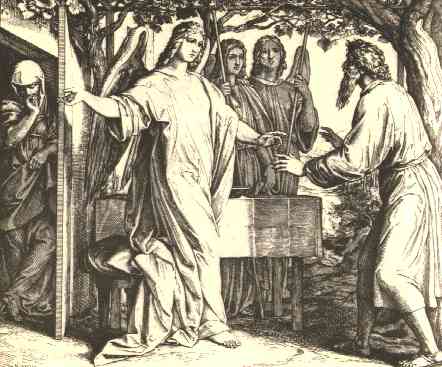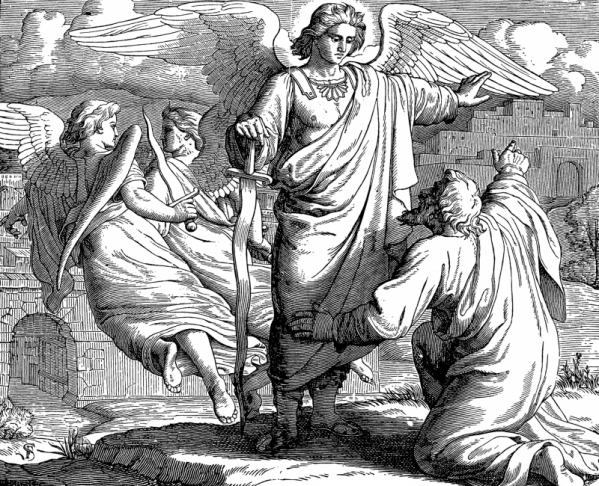This last year I went to a conference in Kentucky called Cross Conference. It was an incredible experience being able to listen to some of the best speakers talk about missions and God’s global plan for the nations. As is typical of a camp-like experience, we reach spiritual mountaintops where God seems to make His promises so clear. When we seek after the will of God, He does not hide it from us. But when we come off the mountaintop (for indeed we must), the promises become murkier and we begin to doubt. It is the age old question, “Did God really say…?” I know, personally, that it took less that a day for this process to begin for me. Imagine how Abraham must feel. God has been promising him a son for years, and not just a son, but through that son, a nation. It may be easy for us to read Abraham’s failure in this chapter and think how foolish he was, and indeed this is the case. But I’d like to argue that the focus of Chapter 20 is not Abraham’s doubt, but God’s faithfulness to fulfill His promise, in spite of even our best efforts to stop Him.
The chronology gets a bit funky here, and it’s difficult to tell when or for how long this story takes place, but we see that Abraham is on the move again. The Bible tells us in verse 1 that he has journeyed toward the territory of the Negeb, living between Kadesh and Shur; and sojourning in Gerar. As always, when visiting a new place, Abraham makes the mistake of thinking that he will be hurt by those in power because of his marriage to Sarah. Once again, he tells everyone that Sarah is his sister. Though he continues to be technically truthful, he is purposefully being misleading. She is much more than just a relative, and this lie almost leads to the death of everyone in a nation. Abimelech, the king of Gerar, sent for Sarah and took her as his own.
Here is where God steps in. He will not allow His promise to be unfulfilled. He appears to Abimelech in a dream and tells him that he is a dead man because he had taken Sarah, informing him that Sarah was married. This news troubled Abimelech greatly, but he had not yet approached her, or drawn near to her. Because he had not slept with Sarah, he pleads with God, asking how He could kill someone who is innocent. He reminds God that Abraham is the one who lied, and Sarah had agreed. God responds that He is fully aware of what Abraham and Sarah had done (after all, they have done this before), but that God was more interested in fulfilling His promise. Regardless of what Abraham’s sin, God would hold Abimelech responsible if he did not return Sarah to Abraham. He reveals that it was He who had kept Abimelech from touching Sarah because He had only taken her in the integrity of his heart. He is warned that if he does not return her he will surely die, and all who are his (which presumably could mean his whole nation, not just family).
Abimelech’s next steps are predictable, promptly giving Sarah back to Abraham. His outrage at Abraham should not be missed. Abraham is the prophet, but he had deceived them, and that lie had almost led to the destruction of an entire nation. When a pagan tells you that your morality is out of line with God’s expectations, you should take note that you have probably stepped out of line. Abimelech, in fear and confusion, says, “You have done things to me that ought not to be done.” This accusation is completely founded.
Abraham’s defense is weak, arguing that because there was no fear of God in the place that he thought they would kill him because of Sarah. He falls back on his lie being a half-truth, since Sarah is indeed his half-sister. What this should show us is that despite the relationship that God had been forging with Abraham over a long period of years, Abraham had a long way to go. He did not think God would protect him in this land that did not fear God. Once again, Abraham is trying to help God by doing His job. God doesn’t need our help. We are completely reliant on Him, though we are often unaware just how true this is. Abimelech vindicates Sarah with gifts of silver, and gives sheep, oxen, and servants to Abraham. Abimelech’s innocence in this passage is starkly contrasted with Abraham’s disobedience, but it is not Abraham who must pay the price. God is showing mercy to Abraham and Sarah, though they are by far undeserving, in order that He might show them how faithful He is to His children.
Abraham prays and God heals Abimelech and his whole house, which God had caused not to be able to bear children. God’s promise to bring a child had been compromised, unwittingly, by Abimelech, and until Abimelech righted the situation, he and his house would not be able to do the very thing God had promised to Abraham and Sarah. I believe it is important that Abraham had to pray for their healing, as this would be a good lesson for him. God had shown His faithfulness to Abraham, but Abraham probably felt the sting of praying for Abimelech’s healing when it was completely his own fault. God is stretching Abraham to become a man of character, molding him into His image. This is restoration of the imago dei.
In the overarching story of Scripture, this story may seem insignificant, but I believe its proximity to the birth of Isaac and Abraham’s disobedience begin to paint a picture for the reader that God is bigger than just a local deity who has petty disagreements with humans, who is vindictive, who needs something from us. This is a God who demands recognition from multiple nations, who created everything, who has chosen to restore His creation to what He intended it to be, and He has chosen to do this through this man who seems so unlikely to ever achieve faithfulness. How God has not destroyed Abraham at this point in the story is a true miracle. The patience of this God is astounding, and His dedication to fulfill His promise is unmatched.



